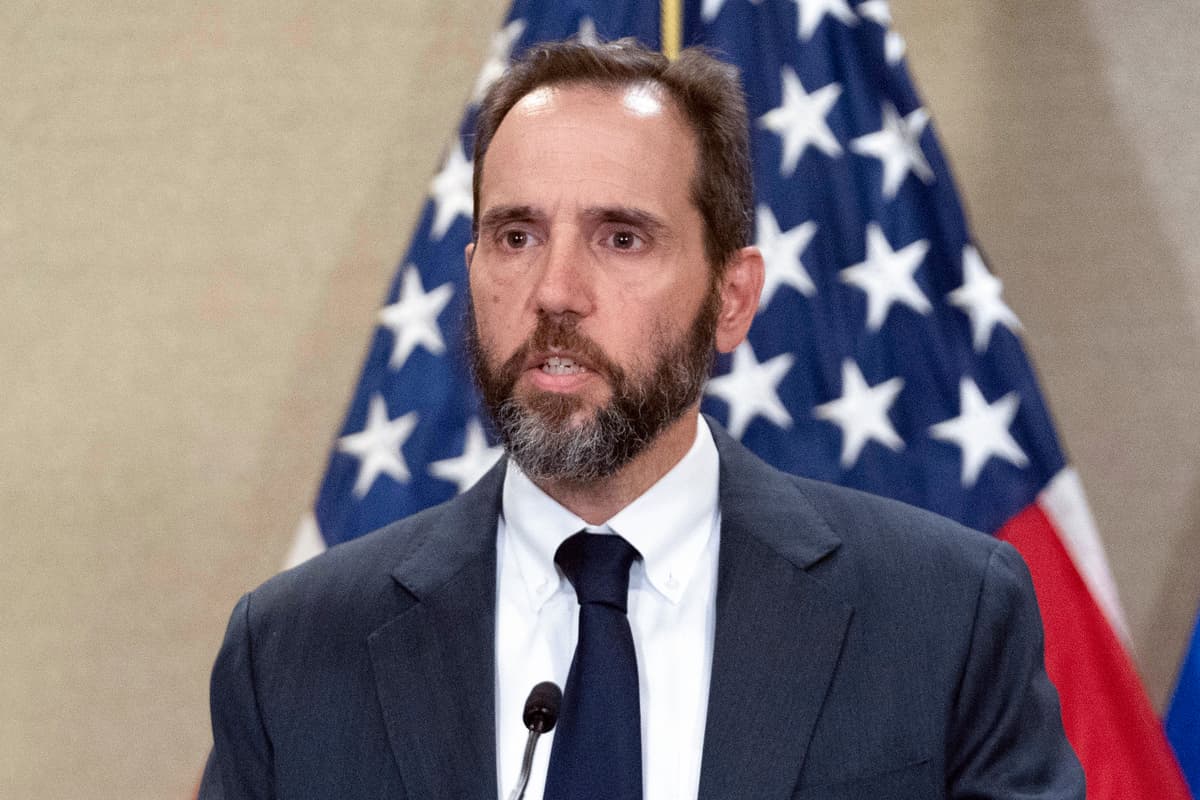Could Jack Smith Be Disqualified for ‘Unconstitutional’ Appointment, Ending His Pursuit of Trump?
The question has been briefed, and could be raised at oral arguments on Thursday.

The effort to disqualify constitutionally Special Counsel Jack Smith from prosecuting President Trump could upend the effort to convict the 45h president for allegedly attempting to overturn the results of the 2020 election.
The Supreme Court will on Thursday hear oral arguments over whether Mr. Trump is entitled to absolute immunity for official acts he took while in office. Both a trial court judge and the United States Court of Appeals for the District of Columbia Circuit have ruled that he is not entitled to such protection.
Also on the court’s docket, though, are amicus briefs that focus not on the protections accorded presidents but the authority exercised by special counsels. One, filed by Attorneys General Meese and Mukasey, along with professors Gary Lawson and Steven Calabresi, maintains that Mr. Smith’s appointment is crosswise with the Constitution. If that is the case, he would have no standing to ask the Nine to uphold the D.C. Circuit’s ruling.
The Legal Information Institute defines standing as the “capacity of a party to bring suit in court.” Mr. Calabresi explains that if Mr. Smith is deemed to lack standing, he “can no more defend the lower court order than can any random person picked off the street.” Any actions he has already taken could be null.
The argument against Mr. Smith’s stewardship of the case centers on how he was appointed, the alleged defectiveness of which the amici call a “serious problem for the rule of law.” The Constitution mandates that “Congress may by Law vest the Appointment of such inferior Officers, as they think proper, in the President alone, in the Courts of Law, or in the Heads of Departments.”
Mr. Smith, who was appointed by Attorney General Garland, not President Biden, claims that he is an “inferior officer,” and therefore did not need approval by the Senate. He observes that the attorney general can fire him, and that he reports to General Garland.
Mr. Garland hired Mr. Smith when the latter was prosecuting war crimes at the Hague, meaning that unlike, say, Robert Hur, who investigated Mr. Biden, he was not already appointed by Congress.
The Supreme Court, in Morrison v. Olson, over an incandescent dissent from Justice Antonin Scalia, ruled that special counsels — then called independent counsels — were constitutional. It did not, though, reach the question of whether they were “inferior officers” at all, or principal ones that would need Senate confirmation. The Supreme Court could now revisit that question.
That possibility is live because standing can be raised by a court sua sponte, meaning of its own accord. The court can inquire into standing at any stage of the litigation, and a standing defect can be raised even if it is not contested by a party. That is because a lack of standing affects the court’s constitutional mandate to only decide “cases” and “controversies,” not merely theoretical disputes. A justice, then, could raise it during Thursday’s hearing.
A different argument, this one before Judge Aileen Cannon in south Florida, comes from another pair of legal sages, Joshua Blackman and Seth Barrett Tillman. They argue that the special counsel is a mere “employee,” because his duties are, in the Supreme Court’s parlance, “occasional or temporary.” They maintain that he needs the supervision of the “duly-nominated, confirmed, and appointed United States Attorney.”
That position will be evaluated by Judge Cannon. If there is interest from the Nine on Thursday in exploring whether Mr. Smith’s appointment is constitutional, she could decide to hold a hearing on that question — sua sponte — though it has not yet been briefed by Mr. Trump himself.

